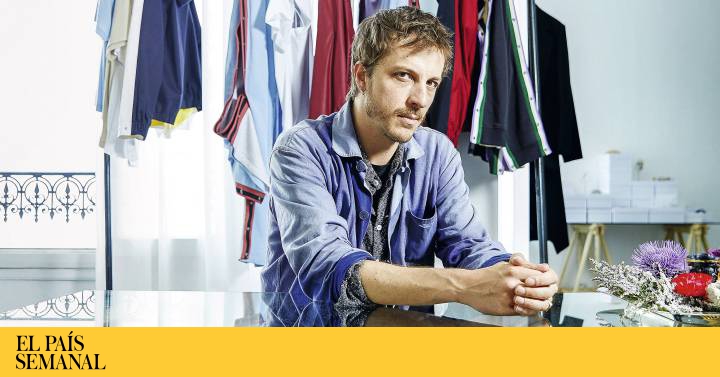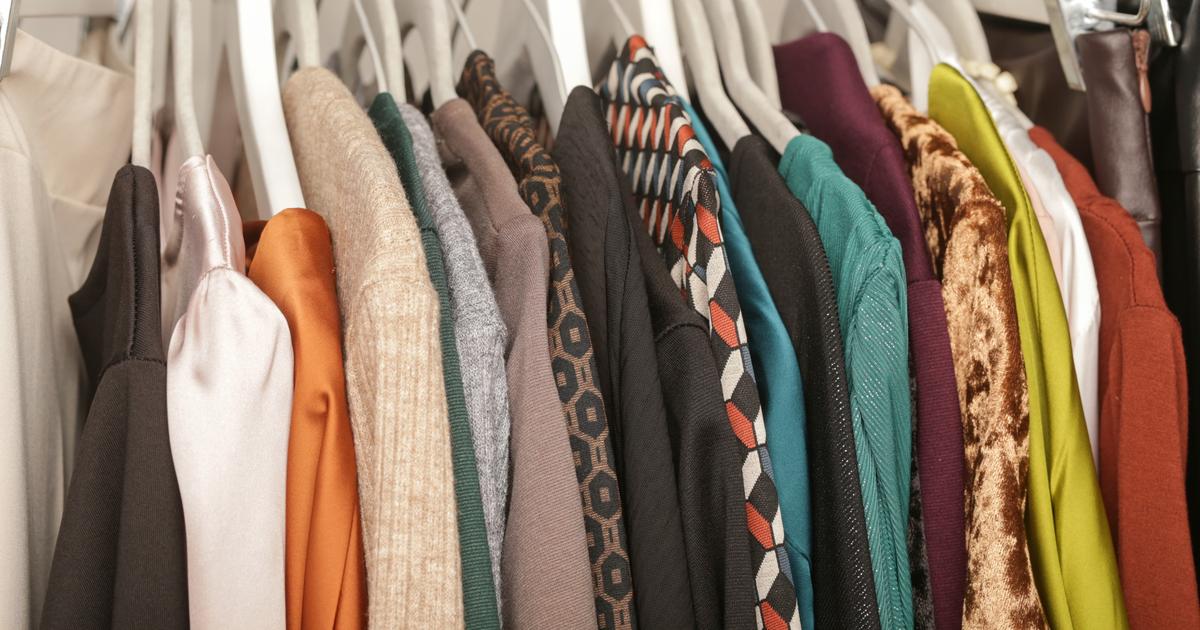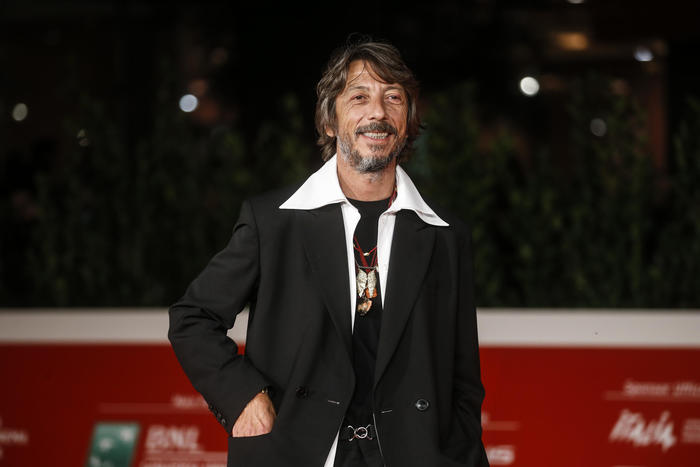In the middle of the Zoom interview, Glenn Martens' computer (Bruges, Belgium, 35 years old) begins to run out of battery and the Y / Project designer runs off in search of the charger.
This, which for seven months is as normal as closing the door of the house and remembering that the mask is inside, is extraordinary if the protagonist is the creative director of a brand that has a turnover of 10 million euros per year.
In these
online
conversations
—Also in the face-to-face sessions—, their counterparts usually want to be surrounded by press officers and assistants, who are conveniently responsible for the status of the laptop or the change in the phases of the Moon.
But Martens represents another way of making fashion and of understanding it, outside the standards of the large conglomerates that dominate the sector, but profitable and successful;
which makes his teaching one of the most interesting and worthy of the current unstable moment.
If its story had to be summed up in a tweet, it could be said that, since taking over the reins of Y / Project seven years ago, Martens has transformed the French firm into the most commercial of independent brands.
A “difficult” position - as he himself admits - but influential, because it connects the underground with the system.
Thus, some of the paths it helped to open - the commitment to genderless garments, inclusive fashion shows and environmental commitment - are now traveled with more or less honesty by established firms: proof that their vision of the sector can have value diagnosis.
Proposal for the spring-summer 2021 collection.
“I started in fashion with people like Martin Margiela or Phoebe Philo, who were capable of creating another type of beauty and, in a way, a particular and magical universe.
In recent years we are seeing just the opposite: brands that have become gigantic because they are highly product-oriented, that mainly do
branding
,
merchandising,
”Martens explains.
The Belgian does not bite his tongue.
And that's even more exceptional than interviewing a creator alone.
You can tell he had a good teacher: Jean Paul Gaultier - one of the freest voices in fashion -, on whose design team he started working after graduating from the prestigious Academy of Fine Arts in Antwerp.
It was the first of his promotion.
In 2010, she became an assistant to Yohan Serfaty, founder of Y / Project, and after his death, three years later, she took over the reins of the brand, which until then was male, opening it to the female market and positioning it as one of the best connected with the millennial consumer
.
Although the universe in which this new generation supposedly unfolds is not exactly to their liking.
Glenn Martens clothes (above) play a role in reformulating their function.
"Our goal is to push the limits of creativity," explains the designer.
Léa Crespi
“We are in the era of people who do nothing but sell.
In a few decades we will not remember Nicolas Ghesquière, but Kim Kardashian ”, he complains.
In this hyper-consumer society, he denounces, "creativity and the concept of luxury have been lost."
An assessment shared by characters in principle so opposed to him and his project such as the president of Chanel, Bruno Pavlovsky, who before the confinement denounced in an interview with
El País Semanal
the depreciation of the sector.
“Each brand interprets luxury in a different way.
For some it is in the concept, and for others, in the way of executing it;
but what we all agree on is that it has to do with exclusivity.
In other disciplines, this exclusivity is protected: artists number their works, wines have a designation of origin, but in fashion it doesn't happen ", reflects Martens before launching the million-dollar question:" Can a bag from which they are made 30,000 units?
Is it luxury or just a high-quality product? "
Perhaps there is no correct answer, but there should be one for one of the key questions in the survival of the sector: "How can we regain respect for what we do? How should we communicate with the customer to make him understand that this is not Just one more product that you consume and discard? ”.
For brands to start respecting their own work is a good start for Martens.
"Some of our garments deserve to be in stores for more than one season, because behind each one, even the simplest shirt, there is a
twist
, a wink, an intention," he claims.
Proposal for the spring-summer 2021 collection.
In his case, the formula to achieve this has been to create a new line, Evergreen, of sustainable and responsible garments - made in factories in Europe where labor rights are respected - that are always on sale and never on sale.
It is a selection of designs that "represent the fundamentals of the brand", but which are more timeless - "easy to put on day to day" - than the bulk of the Martens collections.
Uncomfortable and challenging, their proposals experiment with trompe l'oeil and the notion of functionality: shirts twist when buttoned, coats are converted into skirts, and pants are actually saddlebags that reveal denim panties.
A conceptual revision of
streetwear
with the aftertaste of the Antwerp school that has seduced women at first as different as Rihanna and Juliette Binoche.
Its permanent collection will be updated each season with new pieces;
garments that Martens wants to give more time to, which is what, in his opinion, the fashion industry lacks today.
Time to design, produce and even sell.
“Summer garments, especially for women, hit stores in April and two months later they are already on sale.
There is not enough margin to market them properly and that is why almost nobody makes money with women's collections anymore ”.
But the discount calendar is set at an international level, "it doesn't matter if you're small or big, whether you sell coffee makers or jeans."
A change of rhythm is imposed, more rational delivery dates, although Martens is not optimistic.
“I don't think the big conglomerates are going to change their manufacturing speed because it works very well for them.
The changes will occur in small and medium-sized firms, because we are dragged by agendas that are impossible to follow without their teams and budgets.
Each one must find the formula to survive and that is where interesting solutions will emerge ”, he predicts.
But Martens is not naïve, he knows that those independent brands are the ones in the most fragile position in general, and during the pandemic in particular.
“You have to go very little by little;
If you change everything at once and it doesn't go well, you will most likely have to close your business.
And I like that my 25 workers receive their check every month ”.
Although he is not the owner, Martens has modeled the Y / Project in his image and likeness, infusing it with the values he believes in.
Because yes, the Belgian is one of the designers who consider that "it is a luxury to work in luxury" and that every great privilege comes with a great responsibility.
“My mother is a nurse and what she does is much more important than what I do.
But in addition to his career, he raised two children and has never had much time to think about recycling or diversity. "
He has been able to do it and also be part of a business that influences society.
“My brand not only impacts those who buy my clothes;
many people follow us.
So I have to be responsible and deliver the right messages.
For example, I have always liked to mix people on the catwalk who embody different canons of beauty, because it is important that everyone is represented ”.
Unlike 99% of designers, Martens speaks naturally about his family and his private life.
She has a Murcian boyfriend and in July, when this interview was done, she was about to visit the region for the first time.
Nor does it avoid the question that no creator wants to answer: what brand would tempt you to abandon your current project?
"I'm very happy where I am" is the automatic response, but he goes further.
If he left, it would have to be to a firm with a great historical legacy: “Dior, Chanel, Givenchy… Its history, the possibility of being able to work with crafts, could be very exciting.
But it's sad, because today I don't see a lot of exciting things happening in brands with a great heritage ”.
Hopefully, in any case, you always continue to plug in your own computer.
-








